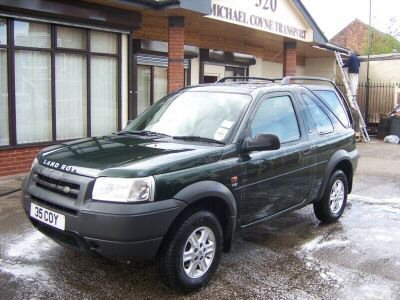Universally_Challenged
Active Member
- Posts
- 513
- Location
- axminster
Evening.
The freelander had its rear hubs changed in or around 2001.
It altered the Offset of the wheel, so if your alloys on your post 2001 hippo touch the outside of the rear drum get them changed. They are more than likly off an earlyer model. however, newer wheels are backwards compatable.
I found out the hard way.
1. changed front pads to find the calipers were pushed out so far the wheel would no longer turn (snagged on the spoke) - had to grind 4 mm off my pads to alough the wheel to turn again..
2. not learning from number 1, had my rear wheel started to snap studs off. on closer inspection the wheel was not sitting on the spiggot fully, (as the alloy spokes were touching the outer edge of the drum) meaning the weight and forces of the wheel/vehicle were being transfered through the studs, it all starded with a gentle clicking sound like a stone in the tyre, then 3 days later BANG, 2 studs gone shooting off down the road. VERY NARROW ESCAPE.
best go check your read drums now.
PS 2001 is what i believe, some one correct me if i'm wrong
The freelander had its rear hubs changed in or around 2001.
It altered the Offset of the wheel, so if your alloys on your post 2001 hippo touch the outside of the rear drum get them changed. They are more than likly off an earlyer model. however, newer wheels are backwards compatable.
I found out the hard way.
1. changed front pads to find the calipers were pushed out so far the wheel would no longer turn (snagged on the spoke) - had to grind 4 mm off my pads to alough the wheel to turn again..
2. not learning from number 1, had my rear wheel started to snap studs off. on closer inspection the wheel was not sitting on the spiggot fully, (as the alloy spokes were touching the outer edge of the drum) meaning the weight and forces of the wheel/vehicle were being transfered through the studs, it all starded with a gentle clicking sound like a stone in the tyre, then 3 days later BANG, 2 studs gone shooting off down the road. VERY NARROW ESCAPE.
best go check your read drums now.
PS 2001 is what i believe, some one correct me if i'm wrong

